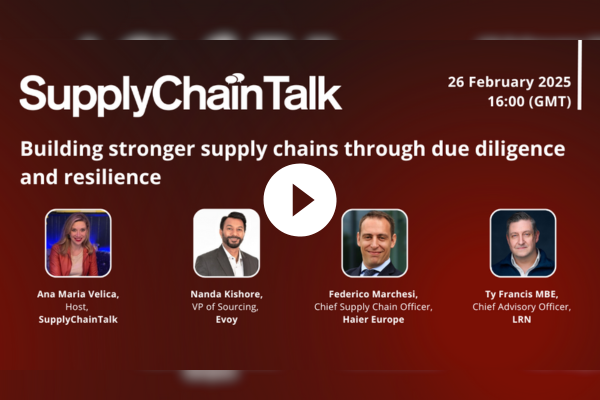Boosting business and improving society

Sid Madge at Meee explains the vital role business can play in society by helping with the rehabilitation of ex-offenders
Incarceration, reoffending, and societal exclusion is a cycle we need to break. We need to rethink rehabilitation, recruitment, and responsibility. And business has an important role. Offering employment to ex-offenders is more than just filling job vacancies; businesses can be contributing to a powerful ripple effect that can reshape lives, families, and communities.
Research reveals that children of incarcerated parents are five to six times more likely to be imprisoned at some point in their lives. This risk stems from socio-economic struggles, the mental toll of parental absence, and fractured family structures following incarceration.
Studies show that only about 17% of ex-offenders secure employment upon release. For employers, many of whom are reluctant to hire individuals with criminal records, this represents a lost opportunity. But it’s also a missed chance to positively influence families and communities, breaking the cycle of crime and poverty.
Employment is a powerful force
Employment is a cornerstone of reducing reoffending. Research shows that ex-offenders with stable jobs are up to 9% less likely to return to crime. Ex-offenders gain dignity, purpose, and income, while businesses benefit from the unique resilience and dedication they often bring. Several companies have realised that hiring ex-offenders isn’t just a matter of doing good; it’s also good business.
UK-based retailer and service provider Timpson has a history of employing ex-offenders; around 10% of Timpson’s workforce are former prisoners. The company reports that many ex-offenders—grateful for the opportunity—demonstrate loyalty and a strong work ethic. Timpson’s hiring model has been successful enough to inspire other businesses to consider similar policies.
XO Bikes is a social enterprise that trains ex-offenders in bike mechanics. By refurbishing and selling bicycles, participants gain hands-on skills in a field facing labour shortages. This model provides a dual benefit: prisoners acquire practical job skills and employers in sectors like construction and engineering find potential workers who have received certified, industry-relevant training.
Greggs bakery chain is another notable example, having joined the “Ban the Box” campaign, which encourages companies to remove questions about criminal records from job applications. By focusing on applicants’ potential rather than past mistakes, Greggs has expanded its talent pool and given second chances to individuals eager to contribute to society. For Greggs, this has translated to lower turnover rates, increased loyalty, and a richer, more diverse company culture.
Solving our shortage of labour
The UK’s labour market is facing its own challenges, with nearly a million job vacancies waiting to be filled. Many sectors—construction, hospitality, healthcare, and engineering to name a few—are in desperate need of workers. Programs that focus on upskilling ex-offenders could address both the skills gap and reoffending rate.
For businesses, engaging with this talent pool can not only meet staffing demands but also cut training costs. Ex-offenders who receive vocational training while incarcerated or shortly after release bring ready-to-use skills, often making them easier to onboard and faster to upskill.
Neuroplasticity and rehabilitation
Our ability to rethink rehabilitation extends beyond job training. Understanding and leveraging neuroplasticity, our brain’s ability to form and reorganise connections, is essential. The brain is capable of “rewiring” itself through new experiences, thoughts, and actions. For ex-offenders, this means that developing new skills, self-beliefs, and habits can fundamentally alter their outlook and behaviours, making them less likely to reoffend.
Neuroplasticity-based programs, which include cognitive behavioural therapy (CBT) and mindfulness, encourage ex-offenders to break old thought patterns and build healthier ones. XO Bikes, for instance, incorporates such approaches alongside job training, recognising that skills alone are not enough.
By fostering a growth mindset, businesses and training programs can help ex-offenders reshape their thinking, encouraging them to view themselves as capable and employable. Rehabilitation thus becomes a deeper transformation, aligning with business goals and community safety.
Five tips for businesses
1. Focus on potential, not past: Start with a policy that looks beyond criminal records to assess an applicant’s skills, attitude, and potential. “Ban the Box” is a helpful framework to remove the immediate stigma of a criminal record and give candidates a fair chance.
2. Partner with organisations: Consider partnerships with organisations that specialise in ex-offender rehabilitation and job placement, such as the Good Jobs Project or Employment Advisory Boards. These groups provide training, support, and access to a skilled, motivated workforce.
3. Provide ongoing support: Former prisoners may face unique challenges, including adapting to a work environment and managing stigmas. Establish mentorship programs or support systems to ease their transition. Timpson’s “buddy” program, where new hires are paired with experienced employees, is a great example of a supportive, successful integration model.
4. Invest in skills training: Partner with training programs to ensure new hires are ready for specific roles. For example, in construction, hospitality, or manufacturing, on-the-job training or apprenticeships can help ex-offenders bridge any remaining skills gaps.
5. Evaluate and adapt: Measure the impact of hiring ex-offenders on your organisation. Companies like Greggs and Timpson have reported not only high retention rates but also improved team morale and loyalty. Use these insights to continually refine your approach.
Creating a broader impact
The benefits of employing ex-offenders reach far beyond individual businesses. Studies suggest that people with stable employment are less likely to reoffend. By keeping people out of prison, we reduce the chances of their children becoming part of the criminal justice system. Data shows that children of incarcerated parents are five to six times more likely to end up in prison themselves.
By employing an ex-offender, businesses aren’t just hiring a worker; they’re potentially transforming the trajectory of entire families and communities.
This issue won’t resolve itself
As communities, businesses, and individuals, we must be ready to rethink our approach. Rehabilitation, employment, and community support are not just essential, they are transformative. Change begins within our communities, but true impact requires a shift in mindset toward compassion, rehabilitation, and shared responsibility.
Real rehabilitation goes beyond job skills; it involves fostering a renewed sense of self-worth and purpose in ex-offenders, and a community that believes in second chances. With collective support and encouragement, ex-offenders have the opportunity to break free from old patterns, rebuild their lives, and replace limiting beliefs with hopeful visions for a brighter future.
Sid Madge is the founder of Meee, the author of the Meee in a Minute book series, and the creator of the Counting on Confidence programme which recognises the untapped potential within prison populations, where many individuals demonstrate remarkable creativity, high aptitude, and a strong growth mindset
Main image courtesy of iStockPhoto.com and Pict Rider

Business Reporter Team
Most Viewed
Winston House, 3rd Floor, Units 306-309, 2-4 Dollis Park, London, N3 1HF
23-29 Hendon Lane, London, N3 1RT
020 8349 4363
© 2025, Lyonsdown Limited. Business Reporter® is a registered trademark of Lyonsdown Ltd. VAT registration number: 830519543





